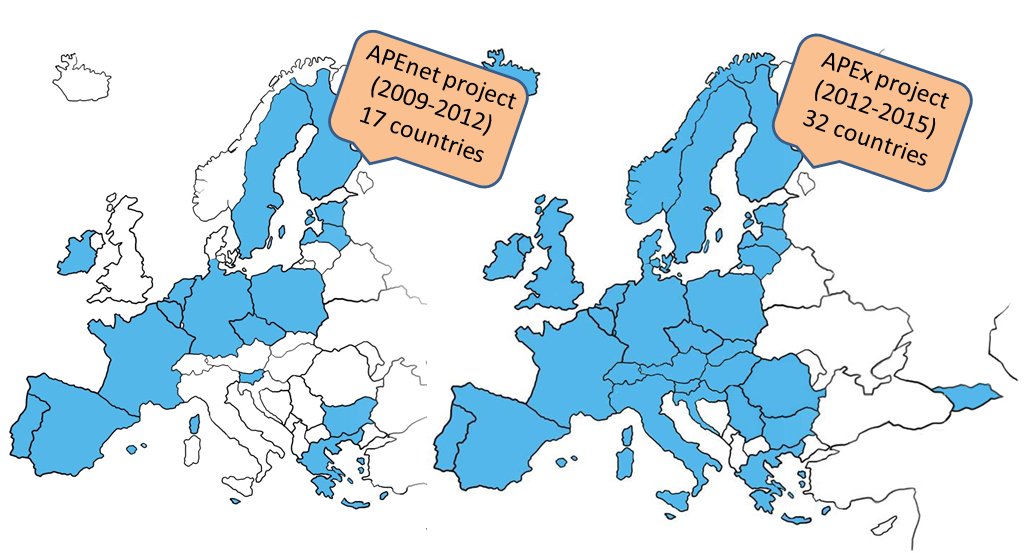Next to getting more countries and institutions involved, the APEx project also worked on the improvement of the infrastructure, the availability of more international archival standards (next to EAD and EAG, EAC-CPF and METS were implemented), substantial improvements in the interoperability with Europeana (moving from automatic apeEAD to ESE conversion to apeEAD to EDM conversion), innovation in the usability of the portal's front-end and exploring the introduction of Web 2.0 functionality.
The APEx core team kept in touch with the expanded network via Country Managers, who - to this day - represent the content providers from their countries and act as liaisons between the core team, now the staff of the Archives Portal Europe Foundation (APEF), and the institutions, as casual testers of new portal functionality and as PR contacts. This Country Manager network, which gathers for face-to-face meetings twice a year, has become an indispensable instrument in the dissemination of the portal, its contents, and its services, and it has furthermore fuelled the knowledge exchange between archives professionals of the different participating countries, thus building an enthusiastic Archives Portal Europe community. The enthusiasm for the Archives Portal Europe initiative among large and small archival institutions in Europe became clear during the APEx project via the overwhelming interest in the two project conferences: one organised in Dublin in July 2013 and one organised at the end of the APEx project in Budapest in September 2015.
Last but not least, the APEx project worked on the sustainability of the whole endeavour, which resulted in the establishment of APEF under Dutch law in 2015. At the end of the APEx project, all APEx partners formally handed over the rights on all the project results to APEF and the official take over by APEF from APEx was celebrated during the Budapest conference on 7 September 2015.

